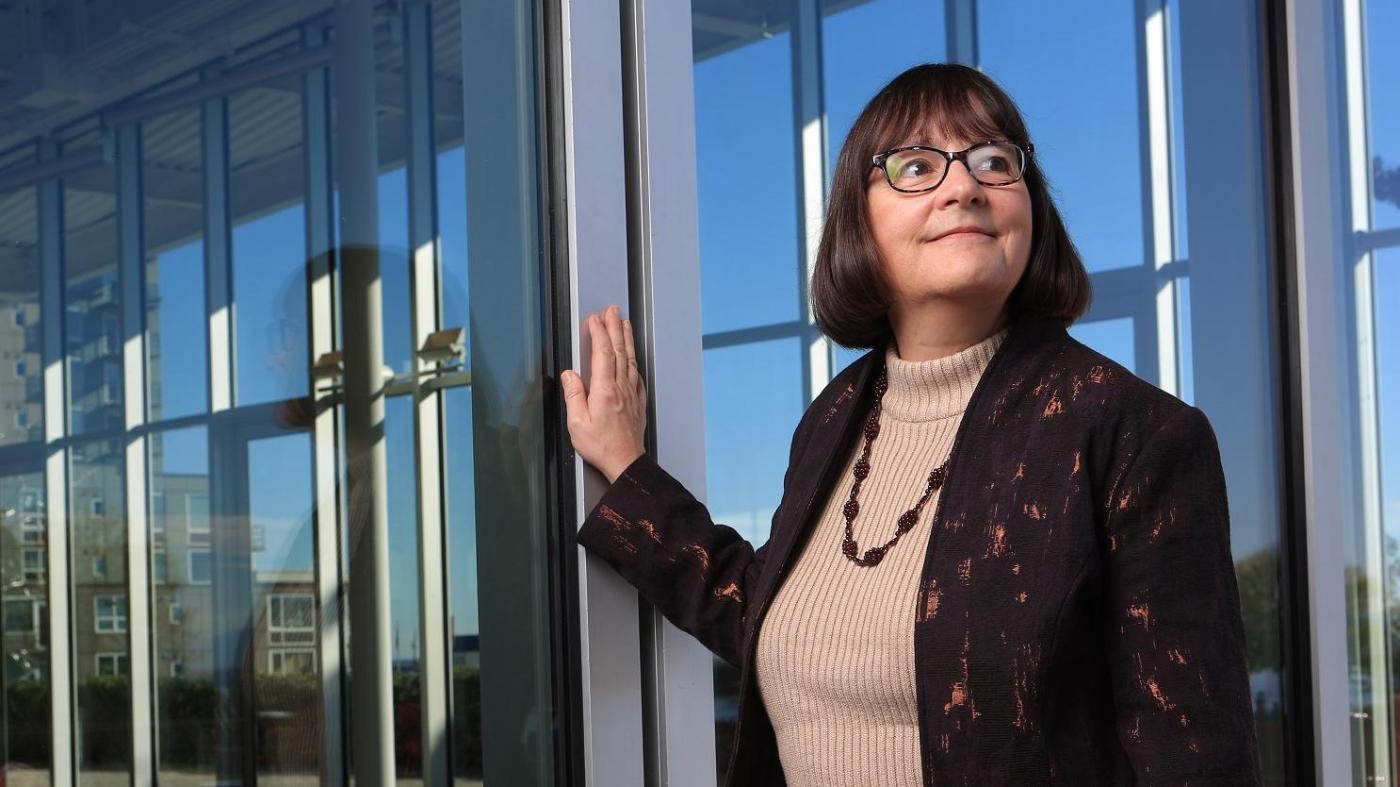When handing out words of wisdom to her students, Professor Janet Ainsworth likes to quote Yogi Berra: “When you come to a fork in the road, take it.”
Opportunities surprise you, she said. And sometimes a change in direction is exactly what you need, even if it isn’t in your well-laid plans. Especially if it isn’t in your well-laid plans.
As Ainsworth prepares to retire after 34 years of teaching, first at University of Puget Sound School of Law and then at Seattle University School of Law when the law school moved north, she reflected on the forks in the road that led her to what she calls “the best job in the world.” (A retirement reception will be held April 6 at the law school.)
In the late 1970s, faculty changes at Yale unexpectedly interrupted her work on a doctorate in East Asia studies, so she took a chance on enrolling in law school since her research had to do with taxation. Then, while at Harvard Law School, a friend asked her to come along as she volunteered for a prison legal assistance program. That led to a passion for trial advocacy, followed by a cross-country move to Seattle after law school to become a public defender.
“By the end of that first year in law school, I knew I would practice law,” she said. “The world was going to have to somehow survive without my research into how the Tang Dynasty handled its taxes.”
Eight years into practice, she came to another fork in the road when a haircut appointment was suddenly canceled. Her stylist had an emergency client – a law professor who was about to interview for a seat on the King County Superior Court bench. Ainsworth had a feeling that the professor would get the job (she did), and there would soon be a job opening at the law school.
Though she didn’t fill that exact vacancy, she made a powerful impression on then Dean James E. Bond, who hired her as a one-year visiting professor to teach trial advocacy and criminal procedure. It wasn’t long before she fell in love with teaching, and that one year became more.
Her connection with students was always evident, said Jason Amala ’05, now partner attorney at Pfau Cochran Vertetis Amala in Seattle. She’s been named the law school’s outstanding teacher several times.
“She made all of the time in the world for her students,” he said. “If she knew you were having a bad day, she would share a story of her worst day. If she saw you struggling with a subject in class, she would share how she struggled with a similar subject. If all else failed, she would just make you laugh, often with a self-deprecating story.”
Ainsworth’s legal scholarship has focused on linguistics and Asian studies, but she has taught primarily torts, contracts, and criminal procedure. In 1995, she became only the second female professor at the law school to receive tenure. And since 2008, she has held the John D. Eshelman professorship, named for the Seattle University provost who coordinated the law school’s move from Tacoma to Seattle.
Though her scholarship has taken her to conferences all over the world, Ainsworth said it’s the students here at home that make it especially difficult to retire. They’re often older and have lived and worked for a few years between their undergraduate education and law school.
“When you look at the experiences our students bring to the classroom, it’s an incredibly rich environment to teach in,” she said. “They’re also much more open-minded and tolerant of each other. There’s something about teaching here that brings out in our students a kind of good will, a kind of bonding. We’ve certainly seen that during the pandemic.”
As a first-generation college and law student, Ainsworth has been especially attentive to the needs of non-traditional students over the years. She grew up in the Northeast, moving every few months as the daughter of a vacuum cleaner salesman. As an academically oriented high schooler intent on pursuing higher education, she hitchhiked into Boston to attend a college-prep program geared to first-gen applicants.
As a freshman at Brandeis University, she struggled to feel like she belonged until a professor reassured her she was just as smart as anyone else. “I asked him later how he knew I needed to hear that, and he said it was his first year teaching, and the anxious look he saw on my face was the same look he saw in the mirror every morning,” she said. “Since then, I’ve been determined to pay it forward with my own students.”

